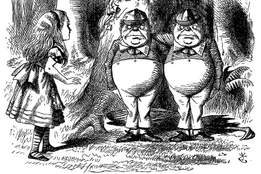: a self-stimulatory behavior that is marked by a repetitive action or movement of the body (such as repeatedly tapping on objects or the ears, snapping the fingers, blinking the eyes, rocking from side to side, or grunting) and is typically associated with certain conditions (such as autism spectrum disorder)
Stimming is seen by many therapists as a protective response to less predictable environmental stimuli that some can be overly sensitive to.— Kayla Jane Jeffers
Kayla Jane Jeffers
 Kayla Jane Jeffers
Kayla Jane JeffersWhen a person with autism engages in self-stimulatory behaviors such as rocking, pacing, aligning or spinning objects, or hand-flapping, people around him may be confused, offended, or even frightened. Also known as "stimming," these behaviors are often characterized by rigid, repetitive movements and vocal sounds.— Teka J. Harris
Teka J. Harris
 Teka J. Harris
Teka J. HarrisSubtler forms of stimming such as tapping a pencil, biting one's nails or twirling one's hair are common in most people's behavior patterns.— Megan Sheet
Megan Sheet
 Megan Sheet
Megan Sheet
stim
intransitive verb
stimmed; stimming; stims
If you've ever tapped your fingers against a counter while you were waiting, congratulations, you've stimmed. Autistic people tend to stim more often and more intensely. Stimming helps us process the sensory input we're gathering, stay calm and grounded in an overwhelming universe, and express joy, distress, or whatever we might be feeling.
— Julia Bascom
Julia Bascom
 Julia Bascom
Julia Bascom
Love words? Need even more definitions?
Merriam-Webster unabridged









Share